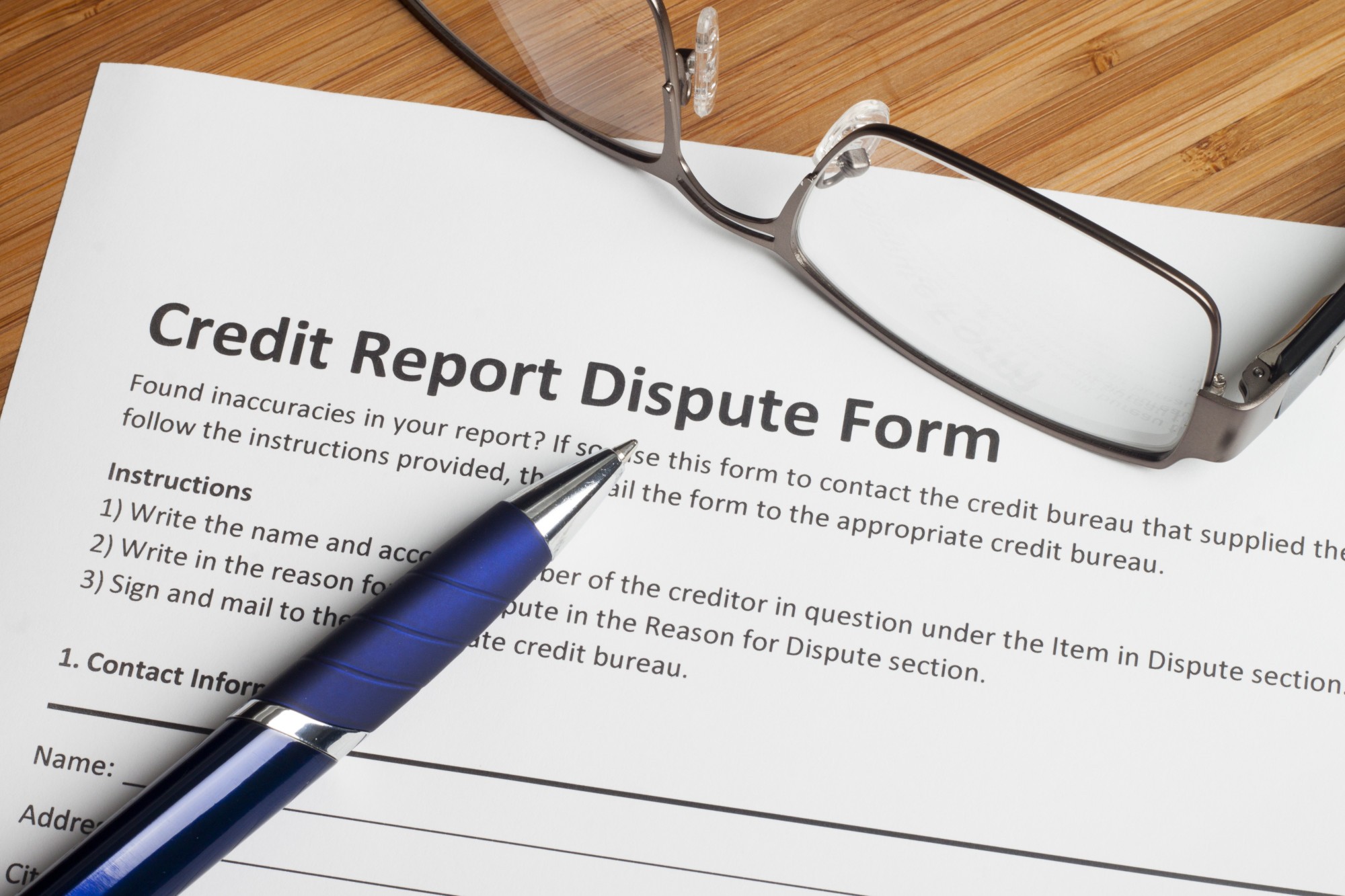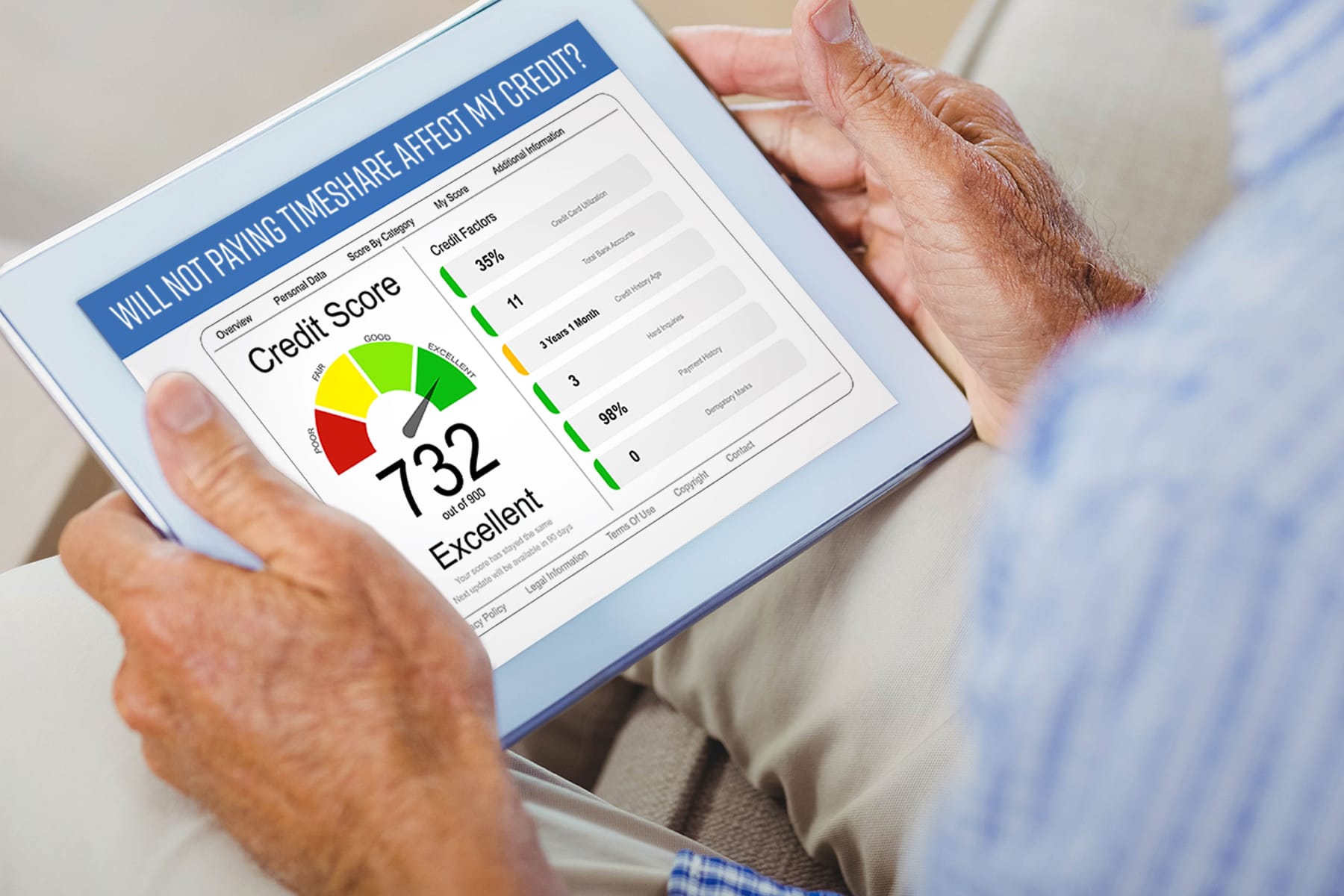Home>Finance>How To Get A Judgement Removed From Your Credit


Finance
How To Get A Judgement Removed From Your Credit
Published: January 7, 2024
Learn how to remove a judgement from your credit and improve your finance. Take control of your financial future today.
(Many of the links in this article redirect to a specific reviewed product. Your purchase of these products through affiliate links helps to generate commission for LiveWell, at no extra cost. Learn more)
Table of Contents
- Introduction
- Understanding Judgments on Credit Reports
- The Impact of Judgments on Your Credit Score
- Checking for Accuracy
- Steps to Remove a Judgment from Your Credit
- Review Your Credit Report
- Validate the Judgment
- Negotiate a Settlement
- Pay in Full or Settle for Less
- File for Dismissal or Vacate the Judgment
- Wait for the Judgment to Expire
- Monitor Your Credit Report
- Conclusion
Introduction
Having a judgment on your credit report can be a major obstacle when it comes to obtaining credit or securing favorable loan terms. A judgment is a legal decision that occurs when a court rules against you in a lawsuit. This can happen for a variety of reasons, such as unpaid debts, defaulting on loans, or legal disputes.
When a judgment is entered against you, it becomes a public record and can stay on your credit report for up to seven years, negatively impacting your credit score and making it difficult to access credit or improve your financial situation.
This article aims to guide you through the process of removing a judgment from your credit report. While it may seem like a daunting task, it’s important to know that there are steps you can take to address the situation and work towards improving your creditworthiness.
Before delving into the steps to remove a judgment from your credit report, it’s crucial to understand the impact that judgments can have on your credit score and overall financial health.
Understanding Judgments on Credit Reports
A judgment is a legal determination made by a court that you are required to pay a certain amount of money to a creditor or entity. Once a judgment is obtained, it becomes a public record and can be reported on your credit report. This information is then used by lenders, landlords, and other entities to assess your creditworthiness.
When a judgment appears on your credit report, it can have a significant negative impact on your credit score. It signals to potential lenders that you have not fulfilled your financial obligations, and they may be hesitant to extend credit to you as a result. Additionally, having a judgment on your credit report can make it more challenging to rent an apartment, secure insurance, or even get a job, as employers may check credit reports as part of their screening process.
It’s important to note that not all judgments are created equal. There are different types of judgments, including civil judgments, tax judgments, and small claims judgments. Each type has its own specific implications and may vary in terms of the legal processes involved.
When a judgment is entered against you, it typically includes the amount owed, the identity of the creditor or entity that has obtained the judgment, and the date it was entered. This information remains on your credit report for a specific period, depending on the credit reporting guidelines.
It’s crucial to thoroughly review your credit report to ensure the accuracy of any judgments listed. In some cases, judgments may be reported in error or may have already been satisfied but not updated on your report. Checking for accuracy is a crucial step in the process of removing a judgment from your credit report, as you’ll want to address any inaccuracies promptly.
The Impact of Judgments on Your Credit Score
When a judgment appears on your credit report, it can have a significant negative impact on your credit score. Credit scoring models, such as FICO or VantageScore, consider judgments as indicators of financial irresponsibility and can result in a significant drop in your credit score.
The exact impact of a judgment on your credit score depends on various factors, including the severity of the judgment, the age of the judgment, and the overall content of your credit history. However, it’s safe to say that judgments can have a detrimental effect on your creditworthiness and make it more challenging to secure new credit or favorable loan terms.
One of the primary ways in which a judgment impacts your credit score is by increasing your credit utilization ratio. This ratio compares your total outstanding credit balances to your available credit limits. When a judgment is entered against you, it typically involves a significant amount of debt. This can cause your credit utilization ratio to increase dramatically, signaling to lenders that you may be overextended and unable to manage your finances responsibly.
Furthermore, judgments can remain on your credit report for up to seven years from the date they were filed. This means that even if you’ve paid off the judgment or it has been dismissed, its presence can still linger on your credit report, tarnishing your credit history and making it difficult to rebuild your credit.
It’s essential to note that there is a light at the end of the tunnel. As time passes and the judgment ages, its impact on your credit score gradually diminishes. However, it’s still in your best interest to take proactive steps to remove the judgment from your credit report entirely.
Checking for Accuracy
Before you can start the process of removing a judgment from your credit report, it’s crucial to thoroughly review your credit report to ensure the accuracy of the information. Mistakes and errors can occur, and it’s important to address any inaccuracies promptly to protect your creditworthiness.
To check your credit report, you can request a free copy from each of the three major credit bureaus – Equifax, Experian, and TransUnion – once a year. These credit reports will provide you with a comprehensive overview of your credit history, including any reported judgments.
As you review your credit report, pay close attention to the following details:
- Is the judgment accurately reported? Check to see if the information related to the judgment is correct, including the creditor’s name, the amount owed, and the date the judgment was entered.
- Is the judgment still valid? In some cases, judgments may have expired or been dismissed but are still being reported on your credit report. Make sure to verify the status of the judgment and take action if necessary.
- Is there any duplicate reporting? It’s not uncommon for judgments to be reported multiple times on a credit report. Look for any duplicated entries and request their removal.
- Are there any errors or inconsistencies? Check for any other errors or inconsistencies on your credit report, such as misspellings or incorrect personal information. These errors can impact your credit score and should be disputed.
If you encounter any inaccuracies or discrepancies, you have the right to dispute them with the credit bureaus. In your dispute letter, clearly explain the errors and provide any supporting documentation that proves the information is incorrect. The credit bureaus are required to investigate your dispute and remove any inaccurate information within 30 days, unless they deem it frivolous.
By thoroughly checking your credit report for accuracy, you can ensure that you have a solid foundation for addressing and removing the judgment from your credit file.
Steps to Remove a Judgment from Your Credit
Removing a judgment from your credit report is not an overnight process, but it is possible with persistence and the right approach. Here are the steps you can take to remove a judgment from your credit:
- Review Your Credit Report: Obtain a copy of your credit report from each of the three major credit bureaus and carefully review it for any reported judgments. Make sure the information is accurate and up to date.
- Validate the Judgment: Validate the judgment by requesting proof of the debt from the creditor or the collection agency. They should be able to provide documentation that shows the legitimacy of the judgment. If they fail to provide proper validation, you can dispute the judgment with the credit bureaus.
- Negotiate a Settlement: Reach out to the creditor or collection agency to negotiate a settlement. In some cases, they may be willing to accept a reduced payment or work out a payment plan to satisfy the judgment. Make sure to get any settlement agreement in writing.
- Pay in Full or Settle for Less: If you are able to reach a settlement agreement, follow through and make the agreed-upon payment. Paying in full or settling for less than the full amount can help improve your chances of having the judgment removed from your credit report.
- File for Dismissal or Vacate the Judgment: In certain situations, it may be possible to have the judgment dismissed or vacated. This typically requires filing the appropriate legal documents and proving valid grounds, such as improper service or lack of proper documentation. Consult with an attorney to determine if this option is viable for your specific case.
- Wait for the Judgment to Expire: Judgments have a limited lifespan on your credit report. In most cases, they remain for seven years from the date they were filed. If you are unable to have the judgment removed through other means, you may need to wait for it to expire naturally.
- Monitor Your Credit Report: Once you have taken steps to address the judgment, continue to monitor your credit report to ensure that it is updated and accurate. Keep an eye out for any relisting or re-reporting of the judgment, and promptly dispute any inaccuracies that arise.
Removing a judgment from your credit report may require some time and effort, but doing so can greatly improve your financial prospects and creditworthiness. It’s important to stay persistent and proactive throughout the process, and consider seeking professional advice if needed.
Review Your Credit Report
The first step in removing a judgment from your credit report is to obtain a copy of your credit report from each of the three major credit bureaus – Equifax, Experian, and TransUnion. You are entitled to one free copy of your credit report from each bureau every 12 months, which you can request online or by mail.
Thoroughly review your credit reports to identify any judgments that have been reported. Pay close attention to the accuracy and completeness of the information provided, including the name of the creditor, the amount owed, and the date the judgment was entered.
If you find any errors or discrepancies, take note of them and gather any supporting documentation that can help you challenge the accuracy of the judgment. This can include canceled checks, payment receipts, or any correspondence related to the debt in question.
It’s important to review all three credit reports since the information reported can vary between bureaus. Discrepancies or errors on one credit report may not be present on the others, so it’s crucial to address any issues with each individual bureau.
By reviewing your credit reports, you can establish a clear understanding of the judgments that are impacting your credit, ensuring that you have accurate information before proceeding with the next steps of the removal process.
Validate the Judgment
Once you have identified a judgment on your credit report, the next step is to validate the judgment. Validating the judgment involves requesting proof of the debt from the creditor or the collection agency that filed the judgment.
Under the Fair Debt Collection Practices Act (FDCPA), you have the right to request validation of the debt within 30 days of being contacted by a debt collector. Even if you were not contacted by a debt collector, you can still exercise your right to validation when you become aware of the judgment on your credit report.
To validate the judgment, write a validation letter to the creditor or collection agency listed on your credit report. In the letter, request that they provide documentation that proves the legitimacy of the debt and its validity. This documentation may include the original contract or loan agreement, a statement showing the outstanding balance, and any records of payments made or missed.
It’s important to send the validation letter via certified mail with a return receipt requested. This way, you have proof of the communication should any disputes arise later on.
Upon receiving your validation request, the creditor or collection agency has a legal obligation to provide you with the requested documentation. If they fail to respond or cannot provide proper validation, you can dispute the judgment with the credit bureaus.
Keep in mind that if a judgment is valid and the creditor or collection agency is able to provide the requested documentation, disputing the judgment may not be an option. However, validating the judgment is a crucial step in ensuring that the reported information is accurate and legitimate.
By validating the judgment, you’re taking proactive measures to ensure that the reported debt is indeed valid and that you have the necessary information to proceed with the removal process if required.
Negotiate a Settlement
Once you have validated the judgment and confirmed its accuracy, the next step is to try to negotiate a settlement with the creditor or collection agency. Negotiating a settlement involves reaching an agreement to pay a reduced amount or work out a payment plan to satisfy the judgment.
Start by contacting the creditor or collection agency listed on your credit report. Explain your willingness to resolve the debt and your desire to reach a mutually beneficial arrangement. It’s crucial to remain calm and professional throughout the negotiation process, as maintaining a cooperative and respectful demeanor can increase your chances of success.
When negotiating a settlement, keep the following tips in mind:
- Start with a lower offer: Begin the negotiation process by offering a lower amount than what is owed. Creditors and collection agencies may be open to accepting a reduced payment to receive a portion of the debt, rather than nothing at all.
- Consider a payment plan: If you’re unable to pay the settlement amount in a lump sum, propose a reasonable payment plan. This shows your commitment to resolving the debt and can help you regain control of your financial situation.
- Get the agreement in writing: Once a settlement is reached, it’s crucial to get the agreement in writing. The agreement should clearly state the agreed-upon settlement amount, any payment terms, and a confirmation that the judgment will be satisfied and removed from your credit report upon completion of the settlement.
- Make timely payments: If you reach a settlement and agree to a payment plan, make sure to fulfill your obligations and make payments on time. This demonstrates your commitment to honoring the agreement and can help improve your creditworthiness over time.
- Keep records of communication: Throughout the negotiation process, keep records of all communication with the creditor or collection agency. This includes phone calls, emails, and any written correspondence. These records can be valuable evidence in case of any disputes or misunderstandings.
Remember that creditors and collection agencies may have different policies and requirements when it comes to negotiating a settlement. Be prepared for potential rejections or counteroffers, and be willing to adapt your strategy to find a resolution that works for both parties.
By successfully negotiating a settlement, you can satisfy the judgment while potentially reducing the impact on your credit report. Make sure to follow through with the agreed-upon payments to ensure a successful resolution.
Pay in Full or Settle for Less
Once you have successfully negotiated a settlement with the creditor or collection agency, the next step is to fulfill your payment obligation. When it comes to resolving a judgment, you typically have two options: paying in full or settling for less than the full amount owed.
Pay in Full: If you have the financial means to do so, paying the full amount of the judgment is the most straightforward way to satisfy the debt. By paying in full, you demonstrate your commitment to resolving the outstanding obligation and can expedite the process of having the judgment removed from your credit report.
Settle for Less: If paying the full amount is not feasible for you, you can attempt to settle for less than the total amount owed. As mentioned earlier, creditors and collection agencies may be willing to accept a reduced payment to close the account and collect a portion of the debt. The exact amount you can settle for will depend on factors such as your financial situation, negotiation skills, and the creditor’s willingness to accept a lesser amount.
When settling for less, it’s important to get the agreement in writing. The settlement agreement should clearly outline the agreed-upon amount, any payment terms, and confirmation that the judgment will be satisfied and removed from your credit report upon completion of the settlement.
Make sure to honor the settlement agreement by making the agreed-upon payments promptly. Missing payments or failing to fulfill the terms of the settlement can have negative consequences and may result in the judgment remaining on your credit report.
Regardless of whether you choose to pay in full or settle for less, it’s crucial to keep records of your payments. Maintain copies of canceled checks, payment receipts, or any other documentation that proves you have fulfilled your financial obligations.
By fulfilling your payment obligation, whether in full or through a settlement, you take a significant step towards resolving the judgment and improving your credit overall. Paying off or settling the judgment demonstrates your commitment to your financial responsibilities and can help rebuild your creditworthiness over time.
File for Dismissal or Vacate the Judgment
In certain situations, you may have grounds to file for dismissal or vacate the judgment altogether. Dismissing or vacating a judgment means having it removed from your credit report, as if it never existed in the first place. This can have a significant positive impact on your credit score and financial standing.
There are several circumstances under which you may be able to pursue dismissal or vacation of a judgment:
- Procedural errors: If there were procedural errors during the lawsuit leading to the judgment, such as improper service of process or a lack of proper documentation, you may be able to seek dismissal or vacation based on these grounds.
- Expired judgment: Judgments have a limited lifespan on credit reports, typically seven years. If the judgment has expired according to the applicable laws in your jurisdiction, you can request its removal from your credit report.
- Payment or satisfaction: If you have fully satisfied the judgment by paying the full amount owed or completing a settlement agreement, you may be able to seek dismissal or vacation based on the fact that the debt is no longer outstanding.
- Mistaken identity: In some cases, a judgment may have been filed against you in error due to mistaken identity. If you can provide evidence proving that you are not the debtor in question, you may be able to seek removal of the judgment from your credit report.
- Legal representation: Consulting with an attorney can help you determine if you have a valid legal basis for seeking dismissal or vacation of the judgment. They can assess your specific circumstances and guide you through the necessary steps.
To pursue dismissal or vacation of a judgment, you will need to file legal documents with the court that issued the judgment. The specific documents required can vary depending on the jurisdiction and the circumstances of your case.
It’s important to note that seeking dismissal or vacation of a judgment can be a complex and time-consuming process. It may involve legal fees and require you to adhere to specific deadlines and procedures. Consulting with an attorney who specializes in debt and credit law can provide valuable guidance and support in pursuing this avenue.
If you are successful in having the judgment dismissed or vacated, make sure to obtain the necessary documentation that confirms the removal and submit it to the credit bureaus to update your credit report accordingly.
Removing a judgment through dismissal or vacation can have a significant positive impact on your credit report, as it eliminates the negative mark and helps improve your overall creditworthiness.
Wait for the Judgment to Expire
If all other options for removing the judgment from your credit report have been exhausted, you may have no choice but to wait for the judgment to expire naturally. Judgments typically remain on your credit report for a specified period, which is usually seven years from the date it was filed.
While waiting for the judgment to expire may not be the most ideal solution, it is important to remember that judgments have diminishing impact on your credit score as they age. As time passes, and you continue to manage your finances responsibly, the negative impact of the judgment will gradually decrease.
During this waiting period, focus on implementing disciplined financial habits and maintaining a positive payment history. Pay your bills on time, keep credit card balances low, and avoid accumulating new debts. By practicing good financial management, you can offset the negative effects of the judgment and work towards improving your credit score.
It’s important to note that even though the judgment may no longer appear on your credit report after the specified time period, the debt may still be legally enforceable. The expiration of the judgment on your credit report does not release you from any legal obligations associated with the debt.
While waiting for the judgment to expire, it is always recommended to regularly review your credit report and monitor any changes. By staying vigilant, you can ensure that the judgment is accurately removed from your credit report once the expiration period has passed.
Remember that the expiration period may differ depending on the laws in your jurisdiction. It’s important to understand the specific rules governing judgments and credit reporting in your area.
While waiting for the judgment to expire is not always an ideal situation, it is a natural course of action when all other options have been exhausted. Use this time to rebuild your credit, practice responsible financial habits, and maintain a positive outlook towards your overall financial well-being.
Monitor Your Credit Report
After taking steps to address and potentially remove the judgment from your credit report, it’s crucial to stay vigilant and continue monitoring your credit report on an ongoing basis. Monitoring your credit report allows you to ensure that the judgment has been accurately removed and to keep track of any new changes or updates to your credit history.
Here are some key reasons why monitoring your credit report is important:
- Verification of removal: Even after the process of removing a judgment, mistakes can occur. By regularly checking your credit report, you can verify that the judgment has been properly removed and that your credit report accurately reflects the current status.
- Identity theft detection: Monitoring your credit report allows you to quickly identify any suspicious or unauthorized activity, such as new accounts opened in your name or inaccurate information that may indicate potential identity theft. Promptly addressing these issues can help mitigate their impact on your credit.
- Tracking credit history: Monitoring your credit report enables you to track the progress of your credit history over time. By observing any positive changes, such as timely payments and reducing debt, you can gain a sense of achievement as you work towards improving your creditworthiness.
- Addressing errors and inaccuracies: Credit report errors can still occur, even after successfully removing a judgment. Regular monitoring allows you to identify any new errors, inaccuracies, or instances where the judgment may be incorrectly re-reported. By promptly disputing and correcting these issues, you can protect your credit standing.
- Preparing for future credit applications: As you work towards rebuilding your credit, staying updated on your credit report helps you understand how lenders perceive your creditworthiness. Monitoring your report allows you to proactively identify areas for improvement and take necessary steps to enhance your credit profile before applying for new credit.
There are several ways you can monitor your credit report. You can sign up for credit monitoring services offered by credit bureaus or third-party providers. These services provide regular access to your credit report and can alert you to any important changes or potential fraud.
In addition, you can take advantage of the free annual credit reports offered by each of the three major credit bureaus. Request and review these reports at least once a year to ensure the accuracy of the information and to address any issues that may arise.
By actively monitoring your credit report, you can stay proactive in managing your credit health, safeguard against identity theft, and address any future issues that may arise.
Conclusion
Dealing with a judgment on your credit report can be a daunting and stressful process, but with the right approach and persistence, it is possible to remove it and improve your creditworthiness. Understanding the impact of judgments, checking for accuracy, and taking proactive steps are key in resolving this financial hurdle.
Reviewing your credit report to ensure the accuracy of reported judgments is essential. If you find any errors or discrepancies, dispute them with the credit bureaus and provide supporting documentation. Validating the judgment is crucial to ensure its legitimacy and gives you grounds for negotiation or further action.
When negotiating a settlement with the creditor or collection agency, be prepared to pay the full amount owed or settle for a reduced amount. Getting any agreement in writing is essential as proof of the settlement terms. Alternatively, you may explore avenues such as filing for dismissal or vacating the judgment if there are valid legal grounds to do so.
In some cases, waiting for the judgment to naturally expire may be the only option. This it typically takes up to seven years from the date it was filed. During this waiting period, maintaining responsible financial habits and regularly monitoring your credit report is crucial to improving and maintaining your creditworthiness.
In conclusion, removing a judgment from your credit report requires attention to detail, perseverance, and a proactive approach. By following the steps outlined in this article and staying vigilant in managing your credit, you can work towards a clean credit history and open doors to better financial opportunities.
Remember, seeking professional advice from an attorney or credit counseling service can provide valuable assistance tailored to your specific situation. With determination and proper action, you can successfully remove a judgment from your credit report and regain control of your financial future.














